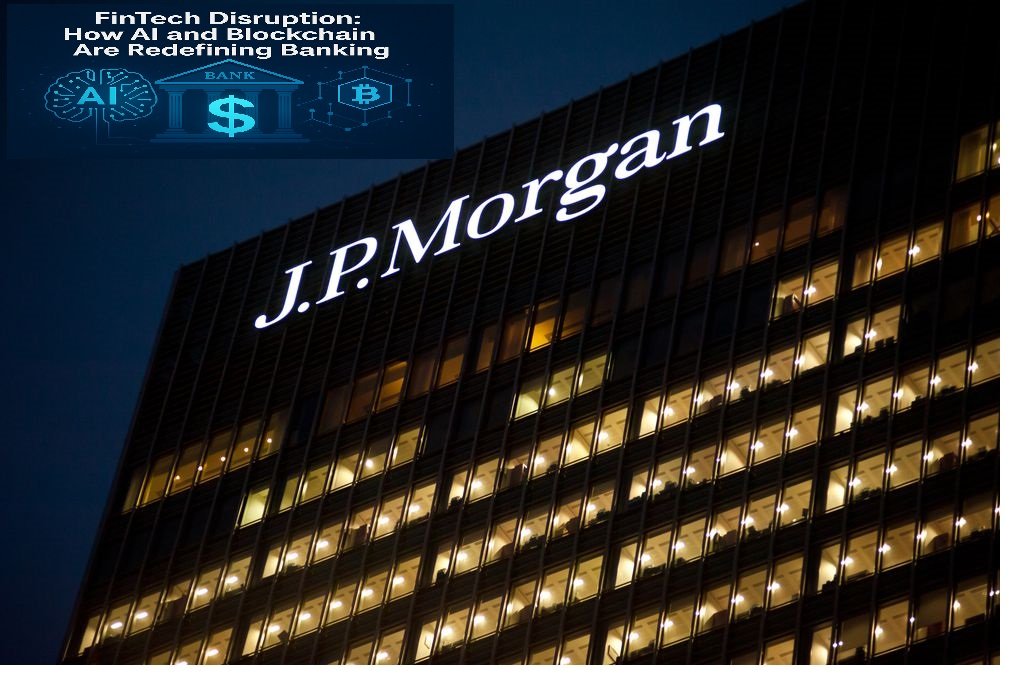
AI and blockchain are reshaping global banking and finance.
Banking is no longer defined by long queues, paperwork, or brick-and-mortar branches. In 2025, the financial services industry is undergoing a transformation led by FinTech innovations, with Artificial Intelligence (AI) and Blockchain at its core. These technologies are not just reshaping how banks operate — they are redefining the entire financial ecosystem, from payments and lending to wealth management and compliance.
Traditional banks are no longer the sole gatekeepers of financial services. Instead, a new wave of FinTech startups and tech-driven financial institutions is challenging old models, forcing incumbents to adapt or risk irrelevance. The result is a financial revolution that is faster, more inclusive, and more transparent than ever before.
AI: The Brain Behind Modern Banking
Artificial Intelligence has become the central nervous system of FinTech. From customer service to fraud detection, AI is enabling smarter, faster, and more personalized financial services.
Key applications of AI in banking include:
- Chatbots and virtual assistants: Providing 24/7 customer support and reducing wait times.
- Fraud detection systems: Using machine learning to analyze billions of transactions and flag anomalies in real time.
- Personalized financial advice: AI-driven platforms like robo-advisors tailor investment portfolios to individual risk profiles.
- Credit scoring innovation: Going beyond traditional credit checks by analyzing alternative data, such as digital payment history or online behavior.
These innovations are making banking more accessible, especially for underserved populations who previously struggled to qualify for loans or investment services.
Blockchain: The Backbone of Transparency and Trust
While AI drives intelligence, blockchain ensures trust. Blockchain technology, best known for powering cryptocurrencies, has now entered mainstream banking with groundbreaking applications:
- Decentralized finance (DeFi) platforms that allow peer-to-peer lending and borrowing without intermediaries.
- Cross-border payments that are faster, cheaper, and more secure than traditional banking systems.
- Smart contracts that automate financial agreements, reducing human error and fraud.
- Tokenization of assets, enabling fractional ownership of real estate, art, and even commodities.
Major financial institutions are already integrating blockchain into their operations. For instance, JPMorgan Chase’s JPM Coin is being used for instant settlement of institutional payments, while central banks across the world are piloting CBDCs (Central Bank Digital Currencies).
Disruption in Traditional Banking Models
FinTech startups are not just enhancing banking; they are disrupting it altogether. Digital-first banks, also known as neobanks, operate without physical branches, offering seamless mobile experiences and competitive rates.
Traditional banks are responding with:
- Partnerships with FinTechs to accelerate digital adoption.
- Mergers and acquisitions to integrate emerging technologies.
- In-house innovation labs to experiment with blockchain and AI.
The result is a hybrid financial landscape where legacy banks and FinTech challengers coexist, compete, and collaborate.
Financial Inclusion and Global Impact
Perhaps the most profound impact of AI and blockchain lies in financial inclusion. Billions of people worldwide remain unbanked or underbanked. FinTech is bridging this gap by:
- Offering mobile-based financial services to rural and underserved populations.
- Using AI-powered micro-lending to assess creditworthiness without formal credit histories.
- Enabling low-cost cross-border remittances for migrant workers through blockchain.
This democratization of finance is helping small businesses, entrepreneurs, and individuals gain access to capital and opportunities previously out of reach.
Regulatory Challenges and Risks
The FinTech revolution is not without risks. Regulators are struggling to keep pace with innovations that cross borders and disrupt traditional financial frameworks. Key challenges include:
- Data privacy concerns in AI-driven financial models.
- Cybersecurity risks as digital transactions expand.
- Lack of global standards for blockchain-based systems.
Balancing innovation with consumer protection will be one of the defining challenges of financial regulation in the coming decade.







